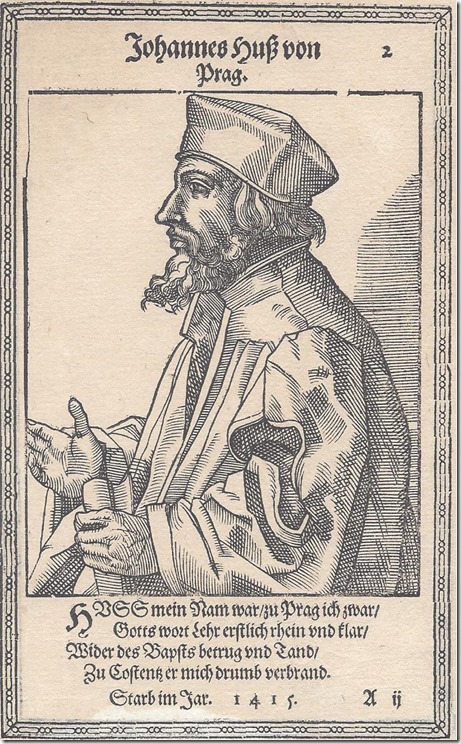Recently, there has been much talk about Artificial Intelligence and how it will change the world. Its initiators are people, and no matter how independent AI becomes, its starting point is people and our ability to solve problems. Right now, a lot is happening in the world that proves the presence of our Holy Simplicity is still with us.
Humanity has a habit of going further out to sea to fish. Solving problems in the here and now is replaced by future scenarios. That’s why Jan Hus’s death at the stake and the bystander’s old woman carrying the sticks to the stake illustrate our lack of solving the problem. This woman felt she was being a valuable member of humanity by participating in the burning of the condemned. However, Jan Hus pioneered Protestant thought, which was greatly respected by, for example, Martin Luther.
Future visionaries are not accepted if they act outside of the Holy Simplicity community or against it. Only those in power are allowed to solve the problems of the present with future scenarios.
Read the whole article on Jan Hus from Wikipedia, the free encyclopedia
Jan Hus (/hʊs/; Czech:[ˈjan ˈɦus]ⓘ; c. 1370 – 6 July 1415), sometimes anglicized as John Hus or John Huss, and referred to in historical texts as Iohannes Hus or Johannes Huss, was a Czechtheologian and philosopher who became a Church reformer and the inspiration of Hussitism, a key predecessor to Protestantism, and a seminal figure in the Bohemian Reformation. Hus is considered to be the first Church reformer, even though some designate the theorist John Wycliffe. His teachings had a strong influence, most immediately in the approval of a reformed Bohemian religious denomination and, over a century later, on Martin Luther.
When the Council of Constance assembled, Hus was asked to be there and present his views on the dissension within the Church. When he arrived, with a promise of safe-conduct,[6] he was arrested and put in prison. He was eventually taken in front of the council and asked to recant his views. He refused. On 6 July 1415, he was burned at the stake for heresy against the teachings of the Catholic Church.
Execution
Anecdotally, it has been said that the executioners had trouble intensifying the fire. An old woman then came to the stake and threw a relatively small amount of brushwood on it. Upon seeing her act, a suffering Hus then exclaimed, ”O Sancta Simplicitas!” It is said that when he was about to expire, he cried out, ”Christ, son of the Living God, have mercy on us!” (a variant of the Jesus Prayer). Hus’s ashes were later thrown into the Rhine River as a means of preventing the veneration of his remains.
The Picture of Jan Hus
From Wikimedia Commons, the free media repository

Woodcut of Jan Hus, c. 1587
Born
c. 1372
Husinec, Kingdom of Bohemia, Holy Roman Empire
(now Czech Republic)
Died
6 July 1415 (aged 42–43)
Konstanz, Bishopric of Constance, Holy Roman Empire
(now Germany)
Cause of death
Execution by burning
Other names
John Hus, John Huss
Alma mater
University of Prague
Region
Western philosophy
School
Hussite
Main interests
Theology
Latino Sine Flexione
English: Latino sine flexione (”Latin without inflections”), Interlingua de Academia pro Interlingua (IL de ApI) or Peano’s Interlingua (abbreviated as IL), is an international auxiliary language compiled by the Academia pro Interlingua under the chairmanship of the Italian mathematician Giuseppe Peano (1858–1932) from 1887 until 1914.
Not to be confused with Interlingua.
I will concentrate on learning languages in 2024
Because I have seen that there’s no idea for me to talk about any profound things because of a lack of interest among people, I have decided to concentrate this year on teaching me languages and poetry.
One of the languages I am interested in is Latino Sine Flexionen. It is not an artificial language but simplified Latin. Anyone interested more in Latino sine Flexione, click some of the links in the first paragraph of this chapter. I have some issues in Latino sine flexione because Peanos’s instructions are not extensive.
O Sancto Simplicitāte
O sancto simplicitate es etiam nunc cum nos.
Nemo periculo evita, id ex occulto specula.
Simplicitate vole ama homines,
sed non pote essere possibile antequam nos
commone lo.
© Yelling Rosa
2024-01-18
